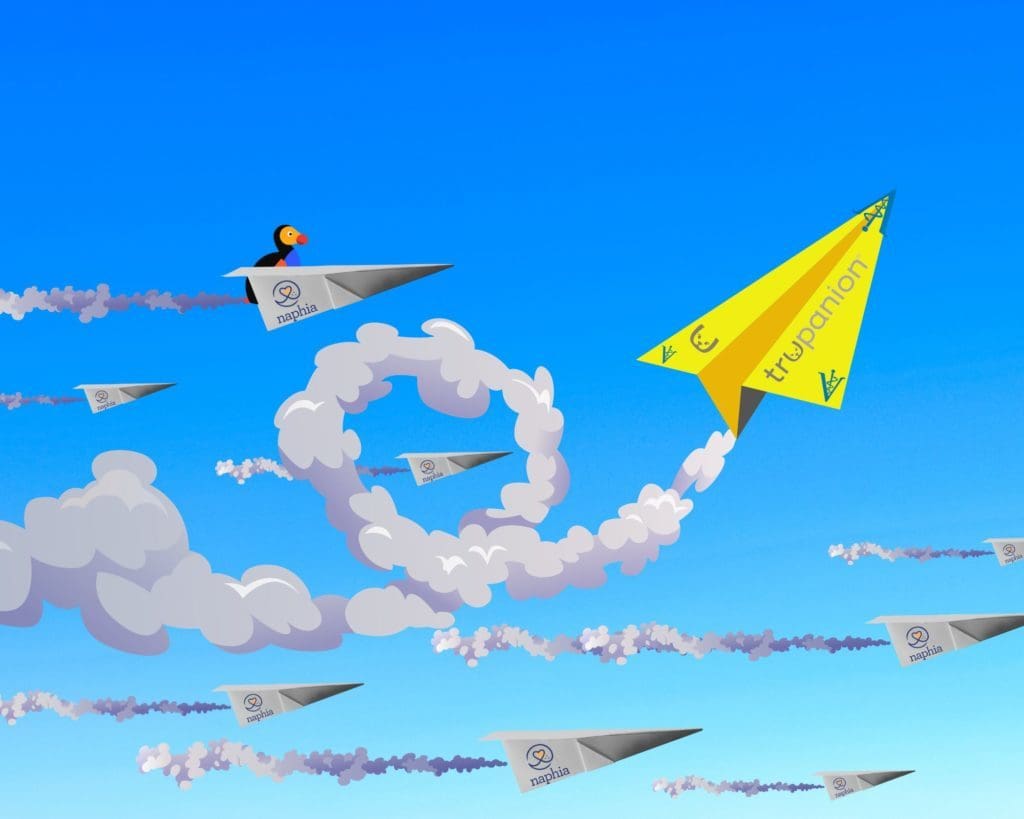Trupanion breaks with industry–again
On August 3, Seattle-based Trupanion, Inc. (TRUP) reported its second quarter earnings, including a loss of $13.6 million. The net loss is notable. What’s less often reported and understood about Trupanion is how often and why it lands policy positions opposite its industry’s main trade association–the North American Pet Health Insurance Association (NAPHIA), ironically the brainchild of Trupanion’s founder and CEO Darryl Rawlings.
Trupanion’s leaders opened the conference call with poignant remarks on the company’s “trusted partnership with the veterinary profession,” a not-so-subtle nod to an ongoing controversy generated by TCR’s reporting last month on revelations from a leading insurance company’s public filing documents. Petplan, now Fetch by the Dodo, had been submitting requests to state departments of insurance around the country for approval to implement new exclusions that would target veterinary professionals.
The opening remarks fell on the heels of forthright comments from Trupanion president Margi Tooth to TCR noting that Trupanion “would never contemplate that kind of exclusion.” Trupanion remains the only insurer that took any position on Fetch/Petplan’s policy, which would have slashed pet insurance coverage for veterinary professionals. Petplan, which rebranded as Fetch by the Dodo following a partnership between the companies, has since announced that it would withdraw the exclusions.
A more in-depth report [update: this report was published on Friday, August 12] addresses the past week, including reaction to Fetch by the Dodo’s backpedaling to veterinary professionals, as well as how pet insurance carriers responded to detailed, repeated requests for comment on the merits of “moral hazard” language, and more.
Excerpts from the opening remarks:
—After years of shouting from the rooftops that veterinarians should be raising their prices faster, we are finally starting to see it in our data. This is very good news, most notably for veterinarians and their staff….” Darryl Rawlings, founder and CEO, Trupanion
What I’m most excited about is that after years of shouting from the rooftops that veterinarians should be raising their prices faster, we are finally starting to see it in our data. This is very good news, most notably for veterinarians and their staff, but also for Trupanion. I’ll elaborate.
Over the course of the past year, we’ve been monitoring veterinary inflation at an extremely granular level. Earlier in the year, we highlighted a return to pre-pandemic frequency or the number of veterinary visits per pet for accidents and illness. In the past month or so, we’ve also begun to see an accelerated increase in the size or dollar amount of the average invoices we are receiving. The combination of invoice size, what veterinarians charge, and the frequency of accidents and illness related to veterinary visits makes up our cost of claims.
For the last 22 years, this veterinary inflation has increased approximately 5% to 6% per year for Trupanion members. Today, we’re seeing the overall cost of care for many veterinary hospitals increase 8% to 12% or approximately twice that of the historical rate. We expect and hope this will continue to increase in the range of 10% to 15% for at least the next three to four years so veterinarians and their staff can be paid appropriately and in line with other medical professionals.
….With rising cost of care also comes a greater need among pet owners to find a solution to help them budget for the unexpected costs of accident and illness. That is why we exist. And I believe and expect that we are and will continue
to be exponentially better, faster and more accurate than others…..
Margi Tooth, President, Trupanion
We want to empower veterinarians to offer and practice the best medicine, removing the emotional toll of heart-wrenching decisions forced by financial constraints.”
There are times when something happens in the world that exacerbates the problem we at Trupanion are trying to solve, when we face an even greater duty to step in and make a difference.
Today’s inflationary environment with mounting economic uncertainty and increasing pressure on our veterinary partners is one of those times. We partner with veterinarians to ensure that pet parents are able to provide for their pets unexpected care. Today, those trusted stewards, our veterinary teams, are struggling more than ever before. Burdened with the rising cost of care, overworked, tired and stressed, veterinarians have been pushed to the point of burnout. Couple this with a backdrop of rising inflation and the fact that, today, the majority of pet owners cannot afford more than $1,400 in unexpected veterinary costs.
The threshold of economic euthanasia is that low.
The rising cost of care will make it only more difficult for the average pet owner to budget for the unexpected, and veterinarians still need to raise their prices.
We’re starting to see early signs of this increase come through in our data, but it’s not enough, and we need to be prepared for this to be much higher. As Darryl noted, in the next three to four years, veterinarians are going to need to raise their prices in aggregate by 30% to 50%.
….in the next three to four years, veterinarians are going to need to raise their prices in aggregate by 30% to 50%.”
We want to empower veterinarians to offer and practice the best medicine, removing the emotional toll of heart-wrenching decisions forced by financial constraints. Finally, we will continue to be there 24/7, 365 days a year for both the lucky and the unlucky pets. We remain steadfast in our mission. Through our business model, we’re able to reach and educate veterinarians and pet owners alike to offer high-quality medical coverage for the lifetime of a pet and to change the paradigm of pet health forever.
Related:
Dodo partner Petplan calls veterinary professionals “moral hazard”

